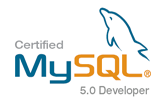Here’s one thing that I wish YSlow (or even HTTPWatch or AOL Pagetest) supported: a way to dynamically export the results of the performance grade results. In a perfect world I would run a set of Selenium tests on my development environment, and get access to YSlow’s results from the Selenium API.
Selenium RC allows you to write unit tests in PHP (or a bunch of other programming languages), and get access to the browser as it is executing your test. If you could get access to YSlow’s results from JavaScript, then you could export that information directly to PHP, parse it, and store it. Add a few scripts to build some simple reports and you are done: performance metrics that you can track and act upon.
I was going to suggest this feature at Velocity last week, but there was no time for questions on most of the sessions. Here’s hoping this doesn’t happen next year.




